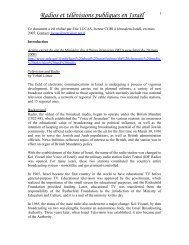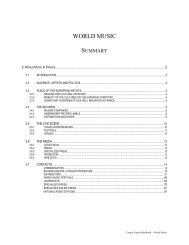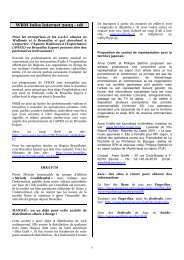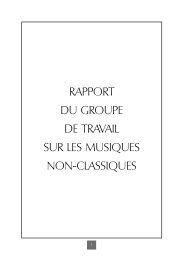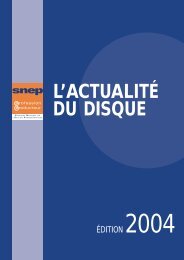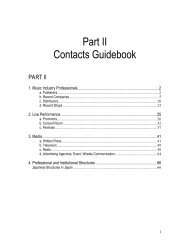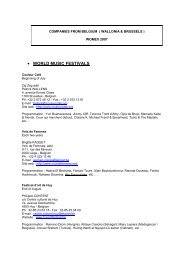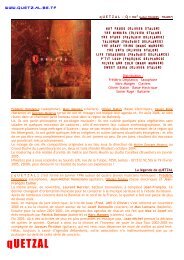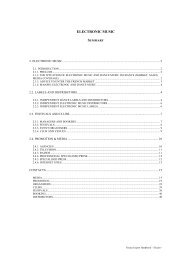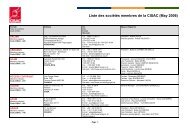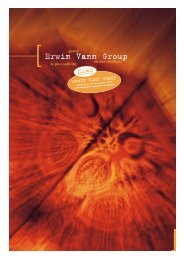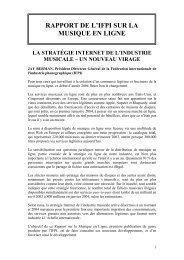2 THE RECORDING INDUSTRY
2 THE RECORDING INDUSTRY
2 THE RECORDING INDUSTRY
Create successful ePaper yourself
Turn your PDF publications into a flip-book with our unique Google optimized e-Paper software.
The body, linked to the then Ministry of Education and Culture, denominated the National Council of Author’s Rights –<br />
CNDA, created in 1973 an installed in 1976, operated during 14 year, being deactivated when the ministry of culture was<br />
extinct in 1990 an incentive of the newly elected President Fernando Collor de Mello.<br />
Since 1990 there has been no state body to look after the norms and fiscal aspects of copyright. The only activity is that<br />
of the police repression in the case of crimes against intellectual property and obviously that of the legal system.<br />
A.3.2–Copyright<br />
a) The works protected: right of the author<br />
Established by law # 9610/98, intelectual works are “protected as creations of the spirit, expressed by any means or<br />
fixed in any support, tangible or in tangible, now known or to be invented in the future .” It also related other protected<br />
works, including:<br />
–the texts of literary, artistic and scientific works;<br />
–dramatic or musical-dramatic works;<br />
–choreography and pantomime whose performance are fixed in a written or in any other form;<br />
–musical compositions, with and without lyrics;<br />
–audiovisual works, with and without soundtracks;<br />
–adaptations, translations and other transformations of original works, presented as new intellectual creations; and<br />
–collections or compilations, anthologies, encyclopedias, dictionaries, banks of information and other works which<br />
because of their selection, organization or content constitute an intellectual creation.<br />
The protection of an intellectual work includes its title, if original and unmistakable with the work in the same genre as<br />
that of another author, explicit in Law 9610 the following are not covered:<br />
I–the ideas, normative procedures, systems, methods, projects or mathematical concepts as such;<br />
II–schemes, plans or rules for carrying out mental acts, games or business;<br />
III–blank forms to be filled out with any type of information, scientific or not, and their instructions;<br />
IV–texts of agreements or treaties, laws, decrees, regulations, legal decisions and other official acts;



